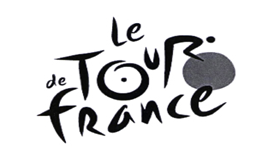Why did the Tour de France opposition fail?
- Rosie Burbidge
- Jun 26, 2024
- 3 min read

The EU General Court has upheld an EUIPO Board of Appeal decision rejecting the Tour de France opposition against the EU trade mark application for TOUR DE X (pictured). The application covered goods in classes 25 and 28 and services in class 41.

The opposition was based on word and figurative registrations for TOUR DE FRANCE and LE TOUR DE FRANCE. The opponent argued both that there was a likelihood of confusion under Article 8(1)(b) of the EUTM Regulation and unfair advantage/detriment under Article 8(5).
No likelihood of confusion in Tour de France opposition
The Court upheld the Board’s finding that the word element “tour de” had very little, if any distinctive character and was not dominant in the Tour de France marks: it was identical in size to the other elements, has the same figurative structure and did not dominate the overall impression.
The Court also agreed that the marks had a low (or very low) degree of visual similarity and a low degree of phonetic similarity. While the Board found there was no conceptual similarity, the Court said there was a low degree:
“the mark applied for is likely to be understood as a reference to a competition, but without reference to a specific geographical location, and not necessarily to a cycling competition. The interpretation of the meaning of ‘X’ is left entirely open. The mere fact that the rights at issue are all likely to be understood as referring to a competition does not make them conceptually similar, given that they refer to different concepts overall.”
The earlier word marks had an average degree of distinctiveness and the figurative mark had a high degree of distinctiveness. The Court added that the Board of Appeal considered the “tour de” element to have very little, if any, distinctive character, especially in relation to cycling events and goods related thereto, as the expression is frequently used in the names of cycling competitions and similar events. It also said the Board of Appeal was correct to find “that the additional distinctiveness acquired through use applied to the earlier rights as a whole, rather than only to the element ‘tour de’”.
Overall, it found that the relevant public (the public at large, cycling enthusiasts and professional cyclists) would not confuse the rights, despite the identity/similarity of the goods and services and the enhanced distinctiveness acquired through use of the earlier rights for services in class 41.
Unfair advantage/detriment
Tour de France’s Article 8(5) case was based on its earlier rights in relation to the organisation of sports competitions.
The Court reiterated that the expression “tour de” is very commonly used in the context of cycling competitions and has very little, if any, distinctive character. Therefore, the public would not perceive a link between the rights at issue, even if the reputation of the Tour de France marks were exceptionally high. It agreed with the Board that:
“given that the relevant public would not make a connection between the rights at issue, the use of the mark applied for in respect of the goods and services that it covers is not likely to take unfair advantage of, or be detrimental to, the distinctive character or the repute of the earlier rights.”
What does this mean?
The judgment provides a good summary of the EU law on likelihood of confusion and damage to reputation, and the scope of protection for earlier word and figurative marks. It highlights the challenges that trade mark owners face if they decide to oppose EUTM applications.
Please contact us for more advice on successfully filing (and defending) oppositions.
To find out more about the issues raised in this blog contact Rosie Burbidge, Intellectual Property Partner at Gunnercooke LLP in London - rosie.burbidge@gunnercooke.com

